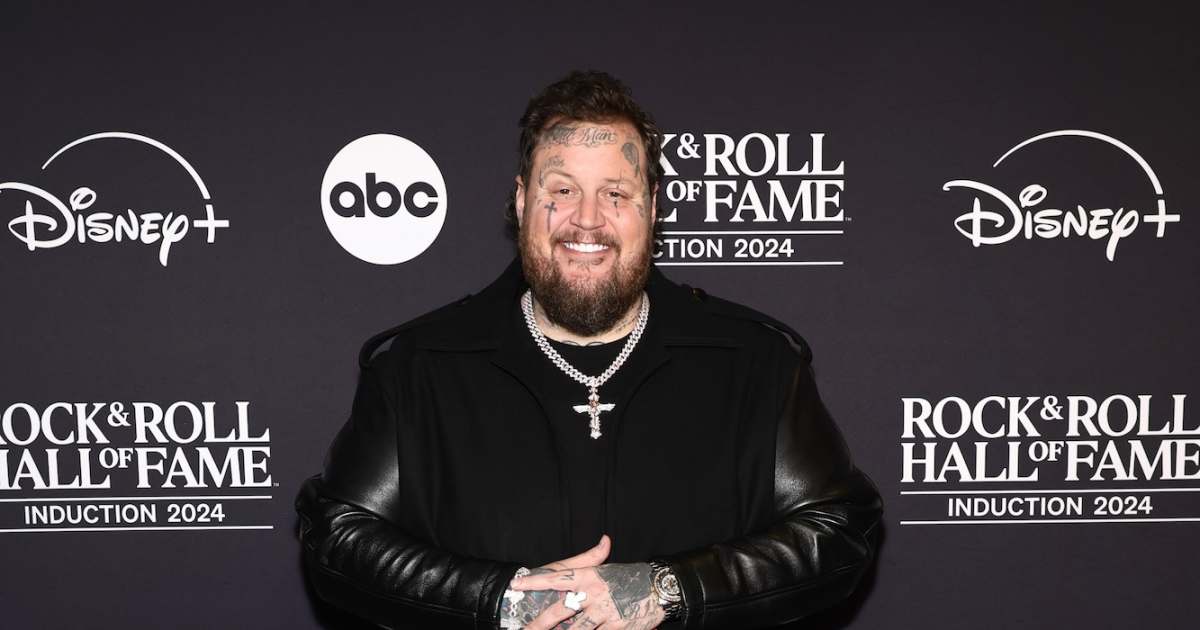Jelly Roll Arturo Holmes/Getty Images for The Rock and Roll Hall of Fame
Jelly Roll has told fans he is opting ‘out’ of using X as a social media platform.
The singer, 39, shared his decision via X on Sunday, October 20, posting a message that detailed his new stance. “This is for sure the most toxic negative app to exist ever — PERIOD. Lol.,” Jelly Roll, real name Jason Bradley DeFord, wrote. “This place is different man, I always heard it was the Wild West on here but man it’s insane. It’s a safe place for everyone to say mean s–t to each other with no consequences.”
He concluded his candid post with, “I’m out lol.” Jelly Roll’s X account is yet to be deactivated, with details of his April 2009 sign-up still visible on the platform.
Jelly Roll’s announcement comes after his wife, Bunnie Xo (real name Alyssa DeFord), spoke out in April about the cyberbullying her husband has faced on social media.
“My husband got off the internet because he is so tired of being bullied about his f–king weight. And, like, that makes me want to cry because he is the sweetest angel baby,” Bunnie Xo, 44, said during the April 24 episode of her “Dumb Blonde” podcast. “My husband doesn’t show it to you guys, but I’m gonna have a very vulnerable moment here — it hurts him. The internet can say whatever the f–k they want about you, and they say, ‘Well, you’re a celebrity, you’re supposed to be able to handle it.’ No the f–k we’re not.”
The model, who married Jelly Roll in 2016, also pointed out during the podcast episode that cyberbullying can lead to fatal consequences. “Do you know how many people kill themselves from being bullied a year? Like, enough is enough,” she said. “Don’t bully people because you never know where they are mentally.”
Jelly Roll is the son of parents who suffered from addiction and mental illness. During the hip-hop star’s teenage years and his early 20s, Jelly Roll went in and out of jail for charges around possession of marijuana and robbery.
In 2023, Jelly Roll won a CMA award in the category of New Artist of the Year. He also won three CMT awards for his song, “Son of a Sinner,” and was nominated twice for a Grammy.
Despite his success, Jelly Roll has remained grounded, sharing his struggles during many interviews and as recently as October 10 when he spoke about attending Alcoholics Anonymous meetings on an episode of “The Highway” podcast, hosted by Ania Hammar.
During the episode, Jelly Roll revealed he attended his first meeting when he was a teenager. “Oh goodness, I don’t fully remember my first real meeting ‘cause I was court-ordered at like 14,” he said. “But I definitely remember the first time that I found solace in those rooms, or the first time that I kind of got introduced to the concept of this. And how much stuff I’ve taken from them rooms.”
Jelly Roll’s experiences with Alcoholics and Narcotics Anonymous meetings inspired his hit song, “I Am Not Okay,” in addition to the track, “Winning Streak,” off his latest album, Beautifully Broken.
“It was really hard for me to get away from those drugs,” he told The New York Times in August. “Something I do [for] maintaining my relationship with those drugs is I will still attend the meetings, even though I’m not a textbook sober guy — but I never share, I just quietly sit and appreciate the message and the meaning.”






